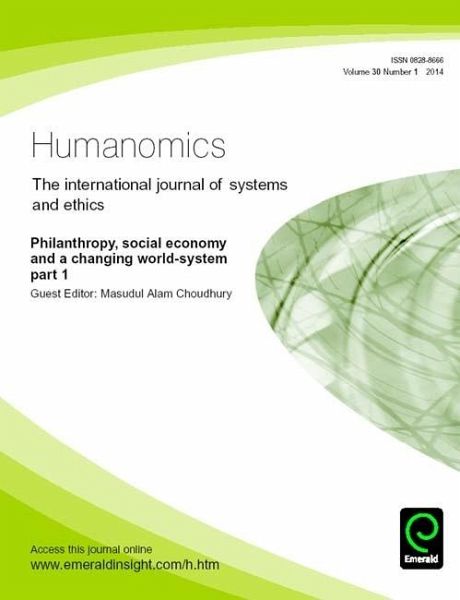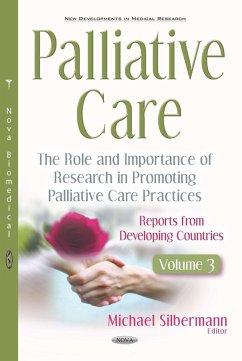
Health Promoting Schools (eBook, PDF)
Evidence, Strategies, Challenges and Prospects: Special edition 1

PAYBACK Punkte
63 °P sammeln!
In 2011 40 people from 5 continents came together at the Stellenbosch Institute for Advanced Study in South Africa to share their global and regional experience surrounding Health Promoting Schools (HPS), in recognition that, as the World Health Organisation is insisting, a moral imperative exists to ensure that all children and adolescents across the world are provided with the resources and environment necessary to enable them to reach their individual potential. This special edition, and another which is to follow, offer updates and insights into the "e;state of the art' of HPS from inv...
In 2011 40 people from 5 continents came together at the Stellenbosch Institute for Advanced Study in South Africa to share their global and regional experience surrounding Health Promoting Schools (HPS), in recognition that, as the World Health Organisation is insisting, a moral imperative exists to ensure that all children and adolescents across the world are provided with the resources and environment necessary to enable them to reach their individual potential. This special edition, and another which is to follow, offer updates and insights into the "e;state of the art' of HPS from invited presentations at the Stellenbosch colloquium. Health Promoting Schools (HPS) increase knowledge and develop behaviours that benefit the health of children, such schools are also an investment in the well-being of the larger community. Importantly for their long-term psychological health 'resilience' is generated by effective HPS programs. Educational initiatives that utilize the relative simplicity, low cost, and inherent flexibility of the HPS model can address many significant issues facing today's children. HPS offer an innovative and participatory way to increase the likelihood of the next generation becoming aware of practical ways to positively influence their lifestyle and future wellbeing. Successful programs are usually those that are relevant, resonate with students, and engage school communities so that they choose to 'own' and sustain their program. Professional development initiatives within schools can catalyse greater absorption of the healthy school approach and focus on best practices. Promotion, support and evaluation of programs is aided by award schemes and oversight by local or national agencies while significant educational benefits are accrued for trainees from centres of higher learning involved in HPS program delivery.The five papers in this edition describe: the concept of resilience and how it can be used in a school setting to develop and strengthen protective factors in young people; an evaluation of a professional development model which focuses on the construction of knowledge in real contexts and reflection in action and can serve as an organizational catalyst for greater absorption of health initiatives in schools; the key factors associated with initiation of innovation and management of change in an education setting, capacity building of key stakeholders the development of a system of evaluation and monitoring based on a "e;Healthy School Award'; and ways in which health professions schools can work in partnership with health promoting schools for mutual educational benefit.The Stellenbosch consensus statement provides a benchmark of the current status of HPS, and outlines future directions for this model of health promotion. These special editions will therefore be of value to all who are interested in the health and wellbeing of young people across the globe.
Dieser Download kann aus rechtlichen Gründen nur mit Rechnungsadresse in A, B, BG, CY, CZ, D, DK, EW, E, FIN, F, GR, HR, H, IRL, I, LT, L, LR, M, NL, PL, P, R, S, SLO, SK ausgeliefert werden.













